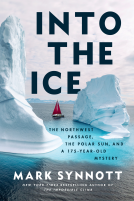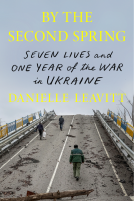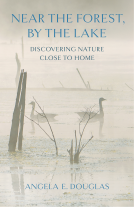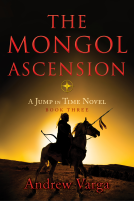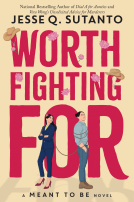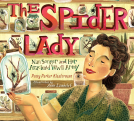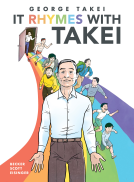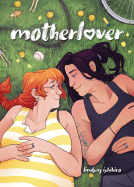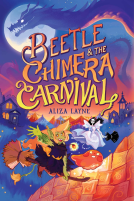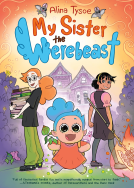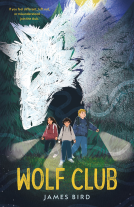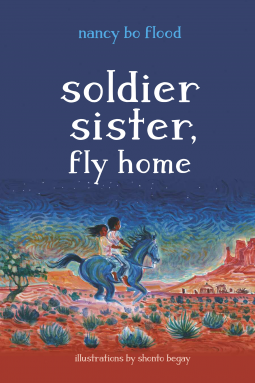
Soldier Sister, Fly Home
by Nancy Bo Flood
This title was previously available on NetGalley and is now archived.
Send NetGalley books directly to your Kindle or Kindle app
1
To read on a Kindle or Kindle app, please add kindle@netgalley.com as an approved email address to receive files in your Amazon account. Click here for step-by-step instructions.
2
Also find your Kindle email address within your Amazon account, and enter it here.
Pub Date Aug 23 2016 | Archive Date Aug 23 2016
Description
Thirteen-year-old Tess is having a hard enough time understanding what it means to be part white and part Navajo, but now she's coping with her sister Gaby's announcement that she's going to enlist and fight in the Iraq war. Gaby's decision comes just weeks after the news that Lori Piestewa, a member of their community, is the first Native American woman in US history to die in combat, adding to Tess's stress and emotions. While Gaby is away, Tess reluctantly cares for her sister's semi-wild stallion, Blue, who will teach Tess how to deal with tragic loss and guide her own journey of self-discovery.
Lori Piestewa was a real-life soldier who was killed in Iraq and was a member of the Hopi tribe. Back matter includes further information about Piestewa as well as a note by author Nancy Bo Flood detailing her experiences living on the Navajo reservation. A pronunciation guide to all Navajo vocabulary used within the text is also included.
Marketing Plan
Chapter excerpt on www.charlesbridge.com
Select author appearances
Reading Group Guide available at www.charlesbridge.com
National advertising campaign
Chapter excerpt on www.charlesbridge.com
Select author appearances
Reading Group Guide available at www.charlesbridge.com
Available Editions
| EDITION | Other Format |
| ISBN | 9781580897020 |
| PRICE | $16.95 (USD) |
Links
Featured Reviews
I really liked this story about Tess who's mom is Navajo and who's dad is white trying to straddle both cultures AND deal with her sister joining the military. Lots of big themes of find who you are and what kind of person you want to be within the context of family and friends.
This reminded me a little of "Part Time Indian", in that it was a search for self, which, in effect, all YA books are. It started out a little slow and dry, but I got into it, after that. Wanted to know what would happen to Tess. The time in Sheep Camp was so well written and so made me feel as though I was there.
 Bethany K, Librarian
Bethany K, Librarian
Tess, half Navajo and half white, lives on the rez with her family and wonders how to reconcile feeling too white for her home community but too Indian for her school in Flagstaff. Her beloved older sister, Gaby, enlists as a way to pay for college, and Tess spends the better part of a year letting anger and acceptance battle in her heart. She's helped in large part by her older sister's prize stallion, Blue, whose wildness and power has always frightened her.
This novel does many things well. Tess's inner conflicts are compassionately written. The scenery is described with clear admiration and love. The reader can only trust that Flood's apparent care and consultation has led to an accurate representation of Navajo culture and language.
Speaking as a white reader, two major elements stand out as cringe-worthy missteps: first, Tess's grandparents fit a highly stereotypical mold of "wise old Indian." They speak carefully and sagely--every utterance a gentle life lesson. They appear to have no flaws, and they radiate serenity. They're lovable, to be sure, but they feel unreal.
The second misstep: Tess's grandmother (the wise, never-wrong elder) tells Tess that the best way to deal with microaggressions is to laugh them off because the other person doesn't understand how hurtful it is. That is absolutely one way to respond, and it's a method that works for some people. Moreover, Tess is given a flash of revelation that maybe she's the one who is intolerant. It's an unfortunate--even if unintended--admonishment when the writer is white and using a respected person of color as a mouthpiece. It implies that that best and possibly only satisfactory choice is to "lighten up."
This book offers an otherwise respectful and eye-opening glimpse into rez life--one that so many unfamiliar readers would benefit from understanding.
Did I enjoy reading Soldier Sister, Fly Home by Nancy Bo Flood? Yes, mostly. But not completely. I can see how there are certain scenes in this one that would greatly upset readers.
I'll start with what I did love. I loved the main character, Tess. She's a complex character, and this is her coming-of-age story. She's struggling to answer the "Who am I?" question. She's half Navajo, half-white; she doesn't feel comfortable anywhere. (When she's attending a mostly-white school, she feels out of place, she feels like she has been labeled as "Indian" as "other." And when she's at home on the reservation, she again feels out of place, like she isn't "Indian" enough.)
But she isn't completely clueless. Here are a few truths she knows to be true: 1) she LOVES to run. 2) she LOVES her family. 3) She doesn't understand how her older sister, Gaby, could join the army and go fight a war in Iraq. 4) She misses her sister terribly, and worries that something horrible might happen to her sister. She doesn't want to pretend that she's proud of her sister and happy to have a warrior sister. 5) She is scared of horses, particularly her sister's stallion, Blue. But scared as Tess is, she promised her sister, Gaby, that she'd take care of Blue while she was away.
The novel opens with the community coming together to mourn or memorialize a fallen soldier--the first Native American woman to die in combat: Lori Piestewa. Soon afterwards, her sister comes home supposedly for a two week leave. Tess is thrilled; she's got plans to spend as much time as possible with her sister. But that isn't to be: her sister will be leaving for Iraq in just a day or two.
In addition to focusing on the relationship between sisters, this one also focuses on Tess' relationship with her grandparents--particularly her grandmother. This relationship was lovely to see developed.
What didn't I love? There were a few scenes that were rough if you're an animal lover. For example, one scene has Tess slaughtering in great, graphic detail a sheep. It is a scene that comes at the end of a very emotional climax. And perhaps it is supposed to be scene as celebratory and significant. But to me, it was way too much. I won't mention the second scene because that would spoil the novel, something I wouldn't want to do.
Is it "fast" or "slow"? I don't know that it's fair to phrase it just like that. I know that some readers are ALL about the action: fast-paced, action-packed, adventure-filled DRAMA. But I know that other readers--myself included--focus more on characters: character development, exploring relationships between characters through dialogue, building authentic, believable settings, etc. I'd say that Soldier Sister, Fly Home is character-driven with a handful of intense scenes.
Good read. Liked the characters and story flow. Couldn't put it down. Had me from start to finish. Recommend reading. Given copy by NetGalley for honest review.
The cycle of life as a girl rides her sister's horse
 Alex B, Reviewer
Alex B, Reviewer
Tess, 13, is having a hard time trying to come to terms with just who she is. Part Navajo, part white, she doesn’t feel like she belongs in either world. Despite being a champion-fast runner, Tess’s teammates at the white school she attends in Flagstaff, Arizona, call her names like ‘Pokeyhontas,’ never seeing her as anything other than an Indian. But when she returns home to the Rez, she never feels Navajo enough.
Tess has been annoyed at her sister Gaby, 19, for joining the Army after her friend Lori Piestewa was killed in Iraq, the first Native American woman to fall in combat. Now, however, Tess can’t wait for Gaby to come home on a two week leave. Maybe Gaby can help Tess sort things out for herself. But Gaby is no sooner home, than she must tell her family that her two week leave has been cancelled, she is being deployed to Iraq, and only has a few days home.
Tess is beyond angry at her sister for leaving, an anger that is compounded when Gaby asks her to take care of Blue, her spirited stallion, and a horse that Tess simply does not like - and the feeling seems to be mutual.
For the first time, Gaby won’t be going with their grandmother to sheep camp at the bottom of the canyon for the summer. Tess, who has never spent the whole summer in the canyon with them, decides to accompany her grandmother, her sheep and mares, and Blue this year. Tess has never ridden Blue by herself, always just leading him by the reins. But on day, while out exploring the canyon with him, a cold, soaking rain begins and, remembering her grandmother’s words that a galloping horse is the fastest way home, Tess rides Blue back to camp. From then on, the two begin to make friends with each other. Now, Tess determines to find the secret waterfall where she and Gaby spent precious time together, and to send some sand from it to her sister - a reminder of those times.
Little by little, Tess begins to come to terms with who she is as she develops more confidence riding Blue and through serious talks getting to really know her grandmother, a woman who knows a lot about who she is and the people who see her a just an Indian.
When tragedy strikes, Tess is faced with a difficult decision, one that will require all the strength she has, but one that will ultimately allow Tess to begin to discover just who she really is.
Soldier Sister, Fly Home is more than just a good coming of age story about family, tradition, culture. It is also a story about 'home' in the literal and metaphorical sense. Above the canyon, the mesa, is home to the Tess who lives there in the world of school, cell phones, malls. As the summer goes by, the canyon, a world of hogans, animals, unfettered nature, slowly begins to feel like home to the Tess, who loves the beauty of it. And it is her grandmother who helps Tess reconcile these two different worlds within herself, to feel at home in both.
But it is Blue who finally takes Tess 'home.' Gaby has told Tess that if she ever got lost riding Blue, he would always find his home if she loosened the reins and let him. And he literally does, twice when they are out riding in the canyon. But Blue also takes Tess home in the figurative sense when she is forced to make a decision about him that will determine who she is from than on.
All of this is told in Nancy Bo Flood's beautiful lyrical storytelling style. I lived in Arizona for four years, and really fell in love the land. I think you will find some of the most breathtaking places on earth there. Flood's beautiful descriptions really made me feel an acute homesickness for the Arizona landscape. Flood has made her setting every bit as much a well-developed main character as she has Tess and her grandmother.
And while I loved Soldier Sister, Fly Home, I did think it was not without one flaw that really bothered me. I felt that Tess's grandmother was perhaps too stereotypical, sounding like the wise Indian speaking in aphorisms. Ironically, this seems to happen in the canyon than up on the mesa, where she seems more like a real character and less like a stereotype.
I should mention also that there are scenes in Soldier Sister, Fly Home that may upset readers sensitive to animals being killed, though it is never done gratuitously or cruelly in this novel.
A Writing Prompt Guide has been prepared by Nancy Bo Flood and can be download HERE
This book is recommended for readers age 11+
Soldier Sister, Fly Home
The prologue for Soldier Sister, Fly Home by Nancy Bo Flood starts with a poem
Feathers fly,
Carrying a heartbeat.
Fly home.
Blue horse. Lii’ Dootl’izhii.
and ends with a vow from Tess that she will never shoot a rifle again. I’m fond of prologues like this that tantalize one into a book.
Tess, half-Navaho and half-white, searches for where she fits in the two worlds she travels between. Early in the book, she points out a common mistake of lumping all Native Americans together in one group, “They (schoolmates) never saw me. They never saw Navaho or white – they only saw an Indian.”
Central to the story is her six-year-older sister’s enlistment in the military after she failed to get a scholarship that would help her go to school. Gaby returns home on leave in splotchy army fatigues with her beautiful dark hair that had hung below her waist sheared short. Gaby had sworn never to cut it, but this is an accommodation to that other world.
Gaby’s deployment threatens the sister tie that includes younger Tess teaching her older sister to read at night before she enters junior high using Archie comic books. Now Gaby asks her to bond with her feisty horse Blue while she is away. A summer at sheep camp with Blue and Shima Sani, her grandmother, in traditional Navaho dress (except for her Day-Glo tennis shoes) helps her begin to answer some of the questions about who she is and where she belongs. Tess and I found wisdom in Grandpa’s philosophy, “Yes, we sing when life comes into this world. We sing when life travels out.”
The author lived and taught in the Navaho community for fifteen years and brings a sense of authenticity to this story that includes practices specific to that culture along with issues common to any coming-of-age story. Back matter includes information about the Navaho language, definitions and pronunciations of Navaho words, and a brief tribute to Lori Piestewa, a member of the Hopi tribe and the first Native American military woman to die in combat on foreign soil. Lori’s contribution is mentioned briefly in the beginning of the book.
I read the book which goes on sale August 23 in an ARC furnished by Net Galley. It is a good read for middle grade and up.
Thirteen year-old Tess is struggling with her identity. As someone who’s part white and part Navajo, she feels too white when she’s on the rez, but she’s called “Pokey-hontas” and “squaw” at the white school she attends in Flagstaff. Her older sister, Gaby, whom she adores, has joined the military in order to get money for college; when she comes home to tell Tess that she’s being deployed – shortly after Tess and her family have attended a memorial service for Lori Piestewa, a member of their community and the first Native American woman to fall in combat – Tess is devastated. Gaby asks Tess to take care of her stallion, Blue, while she’s gone; it’s a challenge, to be sure, as Blue is semi-wild and doesn’t gel with Tess, but over the course of the summer, Tess learns more about herself from Blue than she could have imagined.
Soldier Sister, Fly Home is a quietly tender novel about family, identity, and loss. Lori Piestewa, whose memorial service opens the story, was a real-life soldier who was killed in Iraq and was a member of the Hopi tribe. From Lori’s tale, Ms. Flood spins the story of Tess and Gaby and Native American identity. Their grandfather is a veteran, a World War II Code Talker; they live in a community of proud warriors, descended from warriors. Tess is frustrated as she tries to embrace a cultural identity: but which culture to identify with? Her grandmother is a guiding force here, as is Gaby, who loves and reassures her younger sister, even from a world away. Blue, the stubborn and half-wild horse, teaches Tess patience and helps her recognize her own inner strength throughout the book.
The book includes notes and a glossary on the Navajo language, a note honoring Lori Piestewa and her service, and a reader’s group guide. Writing prompts are available through the publisher’s website, as is a link to a seven-page excerpt.
Soldier Sister, Fly Home has received a starred review from Publishers Weekly. It is a beautiful story and an important addition to all bookshelves.
Nancy Bo Flood was a research psychologist and studied brain development at the University of Minnesota and the University of London before writing books for children. Additional books include recognized and award-winning titles, such as Warriors in the Crossfire (Boyds Mills) and Cowboy Up! Ride the Navajo Rodeo (WordSong).
 Maria P, Librarian
Maria P, Librarian
More More! I started reading this book and 'tbh' I wasn't convinced about it at first. However the story, the character the richness of the story gripped me and left me wanting more.
 Educator 264195
Educator 264195
More More! I started reading this book and 'tbh' I wasn't convinced about it at first. However the story, the character the richness of the story gripped me and left me wanting more.
I was particularly impressed with the development of the characters - the evolution that every chapter just revealed a different perspective/dimension - with a hint of mystery waiting in the wings. Ace
 M M, Reviewer
M M, Reviewer
Sister Soldier, Fly Home by Nancy Bo Flood - Although my original e-copy was provided by Netgalley, I have since ordered one on Amazon, because the storytelling is poignant and simple, the characters are relateable, and the perspective - of a Native American girl torn between tradition and being 'more American', whose sister joins the Army to help support their family, but does so startlingly, without any warning, is unique and valuable. Even if that weren't true, the story has so much emotion and power in it, so much internal discussion on the character's behalf about her feelings, that I couldn't not pass it on.
Readers who liked this book also liked:
George Takei; Steven Scott; Justin Eisinger
Biographies & Memoirs, Comics, Graphic Novels, Manga, Entertainment & Pop Culture
